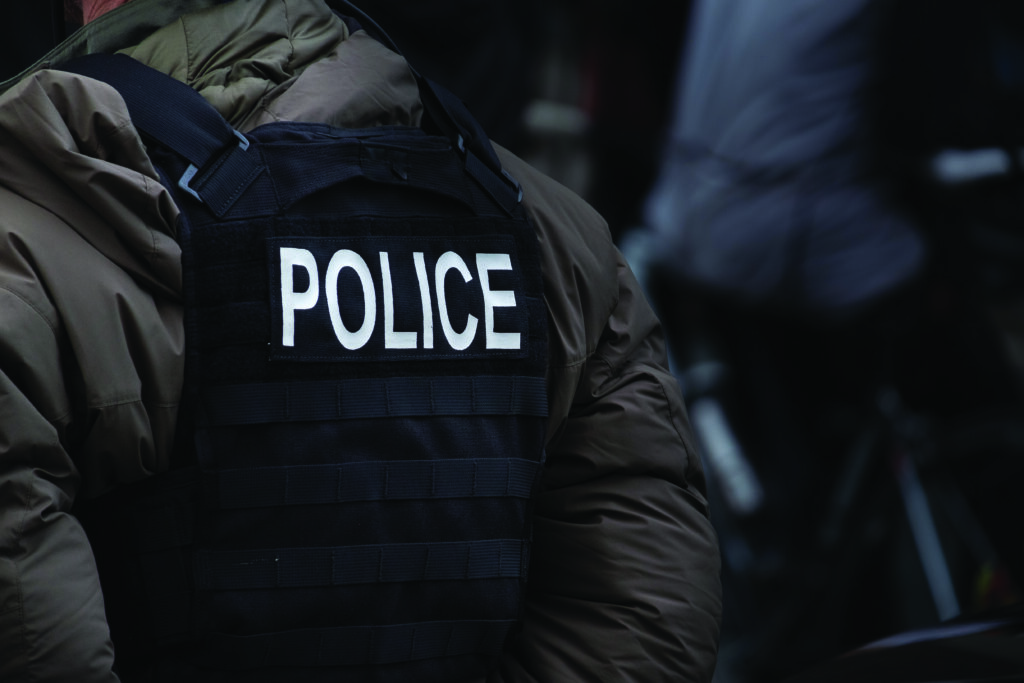
Features
Holding the Line
Opinion
Training for organizational culture change
December 1, 2022 By Michelle Vincent
 Photo credit: Dolores Harvey / Adobe Stock
Photo credit: Dolores Harvey / Adobe Stock We are all too aware of organizational stressors and their impact on the mental health of our sworn and civilian members. Organizational stressors contribute significantly to organizational culture, its toxicity and liability. A toxic organizational culture may elicit bullying and other forms of harassment, and whether intentional or unintentional, the impact of this toxicity may lead to mental health issues and, worst case, suicide.
Understanding how to implement cultural change is key. It may be most effective from the top down—beginning with the leadership team—to ensure the message is loud and clear that cultural toxicity and its components are unacceptable organization-wide.
While we may have this vision and stance, we must also consider the depth in people and habit in which these ways of relating and operating exist. Cultural toxicity does not only exist in the first responder community. In fact, it exists in many dysfunctional environments. When we explore some family dynamics, for example, we can see a sibling throwing another sibling under the bus, so to speak, as a result of their insecurity in an attempt to gain status with a parent. This is no different than what occurs within a toxic organizational culture. We inadvertently encourage competition rather than cooperation within our promotional processes. What if, instead, we were compensated for discovering talents within our colleagues that made them a great fit for a position? What if we truly were open to seeing the incredible contribution they might make to a unit?
Entitlement theory suggests that the traumatic incidents we attend and are not properly processed, as well as under-entitled relationships, may contribute to the impairment of empathy in the officer’s ability to empathize and/or behave in mutually respectful ways (Kingshott, Bailey and Wolfe, 2004). This theory also extends police training, early beliefs in self and others, as well as early attachment experiences that may contribute to relational issues. While there are a multitude of factors that may impact organizational culture, from the individual to the unit(s)/organization themselves, it does not preclude the relational habits we have created and the resulting outcome/liability that this dysfunction creates in its people.
Understanding how to implement cultural change is key.
The next area of interest is training and our approach to how we enact the intended change and mitigate collateral damage within organizations. If we look at how our annual requalification unfolds, in defensive tactics, firearms training and various other scenarios, experiential situations are presented to which police officers are required to respond to. A debrief follows in order to explore the reaction of the trainee in the scenario, thoughts explored, and in the end, there is no right or wrong. Choices are made and then discussed.
It would be interesting if we could include interactive organizational cultural scenarios as part of one’s training. For example, a scenario with two cruisers, door to door, where we have our officers role playing with a script involving a colleague who called in sick. One of the training officers plays the part of instigator of a potential toxic interaction, and the officer(s) in the scenario are asked to engage in some way in this discussion. Perhaps having a quick review on opportunities for success in these types of situations can be presented beforehand. In scenarios that involve potential violence in firearms or defensive tactics, the trainers will often make it somewhat difficult in order to initiate challenges and in-depth thought. The same could be done with these scenarios. Trainers could even add a Hartlab monitor to gauge physiological reactions to the responses, providing further discussion on the physical effects of toxic organizational culture.
Having our leadership participate in such training/workshops and wearing monitors might provide some hands-on experience on how it feels to engage in toxic behaviour. Coupling this work with positive organizational change may provide leaders a deeper understanding of the effects of mental health issues relating to organizational culture, bullying and harassment when approached by a sworn or civilian member. These trainings may also provide powerful solutions when conflict arises within their leaders be it sergeants, supervisors or coach officers in various units/platoons.
We research, we train and we discuss. Now it’s time to put it into practice.
References
Kingshott, B. F., Bailey, K. & Wolfe, S. E. (2004) Police Culture, Ethics and Entitlement Theory, Criminal Justice Studies, 17:2, 187-202, DOI: 10.1080/0888431042000235020
Michelle Vincent PhD/MACP is a retired officer and the founder of The Haven, Ontario’s first non-profit, inpatient treatment centre exclusive to first responders and uniform personnel. Contact her at michelle.vincent@thehaven.cloud.
Print this page